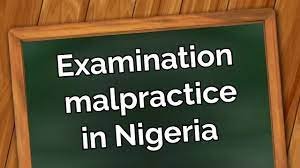Know the law and your rights, through our law reports made simple for lawyers and non-lawyers
UNIVERSITY OF UYO
V.
LINDA ONYEBUCHI ESSEL
(2005) LPELR-11496(CA)
Facts
Linda Onyebuch Essel, a Law Student at the University of Uyo, was alleged to have committed examination malpractice. The University set up an Examination Malpractice Panel to investigate the allegation. The Examination Malpractice Panel found that Linda had pre-knowledge of the examination questions in PUL 211 – Constitutional Law Examinations and took a pre-written examination answer booklet into the exam hall and submitted it to the supervisor after the exam. They, thereby, found that she committed examination malpractice. Linda appealed against this decision to the Senate Appeal Panel but was unsuccessful. She was therefore expelled from the University.
Dissatisfied by the decisions of the two panels, Linda brought an application before the Federal High Court sitting in Calabar, seeking to quash the decisions of the two panels, reverse her expulsion and reinstate her to the University for the completion of her academic programme. She also asked for N6,000,000.00 (Six Million Naira) special and general damages.
The learned trial judge of the Federal High Court, Nwaogwugwu, J., after hearing the parties held that that the allegation of examination malpractice levelled against Linda was in the nature of a criminal offence and consequently was not within the domestic jurisdiction of the two panels set up by the University of Uyo.
He granted the reliefs sought by Linda except for the special damages.
Aggrieved by the decision of the Federal High Court, the University of Uyo appealed to the Court of Appeal.
Legal Issue
What is the penalty for examination malpractice in Nigeria?
Can a University legally try a student alleged to have committed examination malpractice?
Decision
The Court of appeal stated that it is the law that Courts do not interfere with the internal administration of an institution. What amounts to the internal administration of an institution for which action may not be taken against the University have been held by the Court to be purely academic matters.
Any accusation or allegation of examination malpractice is a serious criminal charge under Section 3(16) of the Special Tribunal Miscellaneous offences Act and it is punishable with ten (10) years imprisonment. Therefore, it is not within the powers of the University. Examination Malpractice is a serious criminal charge, which can be tried only in a competent criminal Court or a Tribunal set up under the Constitution. Under the Constitution of the Federal Republic of Nigeria, only a Court of law or a judicial Tribunal can competently hear and determine a criminal charge against students of a university. Neither the Vice-Chancellor nor any investigating panel set up by him has any competence in law to do so. Offences against the law of the land, fall outside the jurisdiction of the Vice-Chancellor. If a student in a university is charged for the commission of a crime the student can only be proved guilty before a Court or Tribunal.
The Court of Appeal, therefore, found that the judge of the Federal High Court was correct to have held that the allegation of examination malpractice levelled against the respondent was in the nature of a criminal offence and consequently was not within the domestic jurisdiction of the two panels set up by the University of Uyo.
In conclusion, the appeal by the University of Uyo against the decision of the Federal High Court was dismissed and the decision of the High Court upheld.




